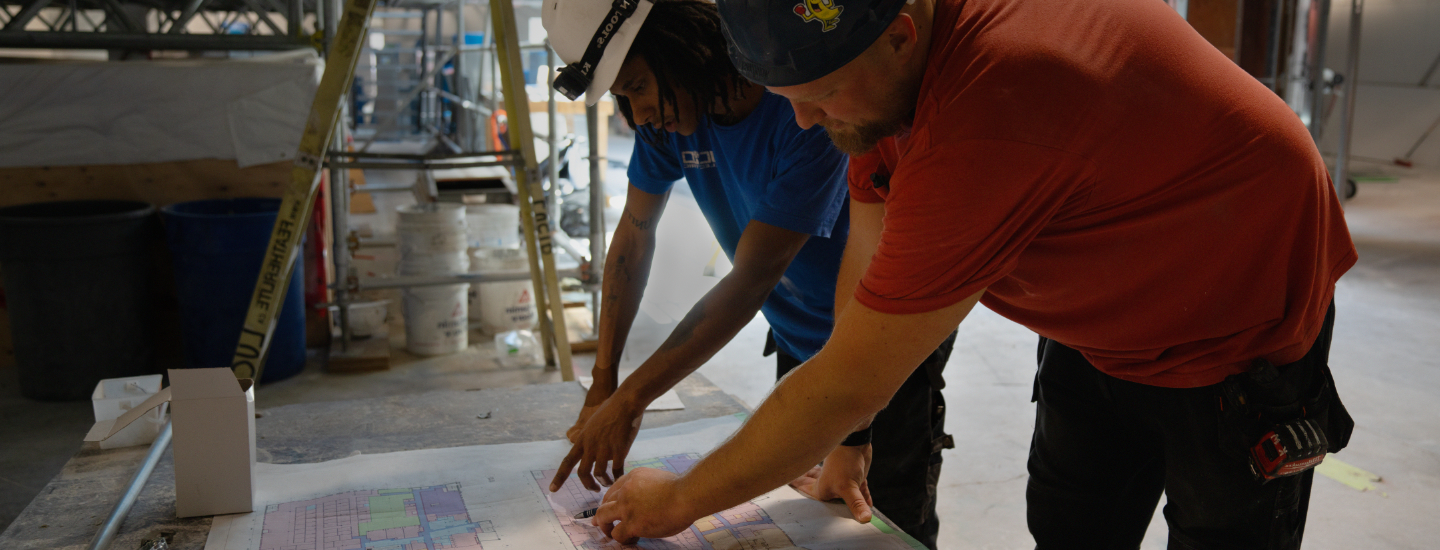
United Way is working to ensure families can connect to Social and community service organizations in the face of rising costs
As rents and real estate costs continue to soar across the Greater Toronto Area (GTA), local community service organizations are struggling to stay rooted in our local communities. These organizations, which provide essential services such as food banks, youth programs, counselling and health clinics, employment supports and newcomer services, are grappling with the same skyrocketing costs as the residents they serve.
According to our Essential Spaces: Real (Estate) Solutions to Community Needs research report, 70 per cent of community service agencies in the GTA included in the study lease their spaces, leaving many of them vulnerable. As rising costs and displacement threaten their future existence, thousands of people who rely on their essential services could be left without the crucial support they need.
For decades, United Way Greater Toronto has been at the forefront of community building, and we are stepping in with a bold initiative aimed at addressing today’s challenges — Community Real Estate.
A growing crisis threatening our neighbourhoods
As neighbourhoods change, the need for securing stable, affordable spaces has never been more urgent. As Ruth Crammond, Vice President of Community Infrastructure at United Way Greater Toronto explains, “It’s about making sure services and programs are available in neighbourhoods where people need them most. The GTA is growing yet too many people are grappling to make ends meet. We’re seeing an increase in poverty, and agencies need to be in the right locations to meet that demand.”
United Way’s strategy is focused on providing community service organizations with the tools they need to navigate real estate decisions, whether through ownership, or long-term leases, with public entities. In the past 10 years, occupancy costs for agencies leasing their space have increased by an average of 10% more than occupancy costs for agencies that own their space. Many agencies are vulnerable to sudden rent hikes or lease terminations.
Community Real Estate: A lifeline for non-profits
United Way’s Community Real Estate initiative is designed to take these vulnerable organizations out of the precarious commercial market. By helping them secure more stable, non-market spaces, the initiative aims to ensure that services can continue where they are most needed.
“For some agencies, owning a space is the best option,” says Isabel Cascante, Director of Research, Public Policy and Evaluation at United Way Greater Toronto. “It gives them control over their future and allows them to make modifications to the space that fit their unique needs. But ownership isn’t always possible or practical, which is why we’re also focused on helping community agencies secure long-term leases in more stable environments.”
In addition to securing spaces, the quality and accessibility of these locations are just as crucial. Some community service organizations find themselves in spaces they cannot fully adapt due to restrictive lease agreements. This limits their ability to tailor services to the community and make the most of their space.
“It’s not just about having a space,” Cascante says. “It’s about making sure it’s the right space for the community and the services being offered.”
Community Hubs as a solution
One of the key strategies United Way is pursuing involves the creation of more Community Hubs — shared spaces where multiple agencies can offer services under one roof. United Way already has 10 Community Hubs and plans to expand with 10 more across the GTA in the next decade. These Hubs not only provide stability, but also allow agencies to pool resources, making it easier to serve growing or changing populations.
“In areas like Peel and York Region, where population growth is outpacing the development of community services, the demand for hubs is only increasing,” Crammond says. “A hub can bring essential services together, ensuring they stay within reach for those who need them most.”
A strategic response to a complex problem
United Way’s Community Real Estate initiative is about more than just securing space — it’s about empowering non-profits to make informed decisions about their futures. By offering expertise, financial support and long-term solutions, we’re helping these organizations thrive despite the challenges of the real estate market.
“Secure and quality space is a vital piece of the puzzle when it comes to delivering services,” Crammond says. “We’re here to make sure that agencies have the security and stability they need to continue supporting the community.”
With United Way’s help, these agencies are better positioned to meet the increasing needs of a growing and changing population and, as the GTA continues to evolve, ensuring that community service organizations can remain in the neighbourhoods they serve is a key piece to the well-being of the entire region, today and for the future.